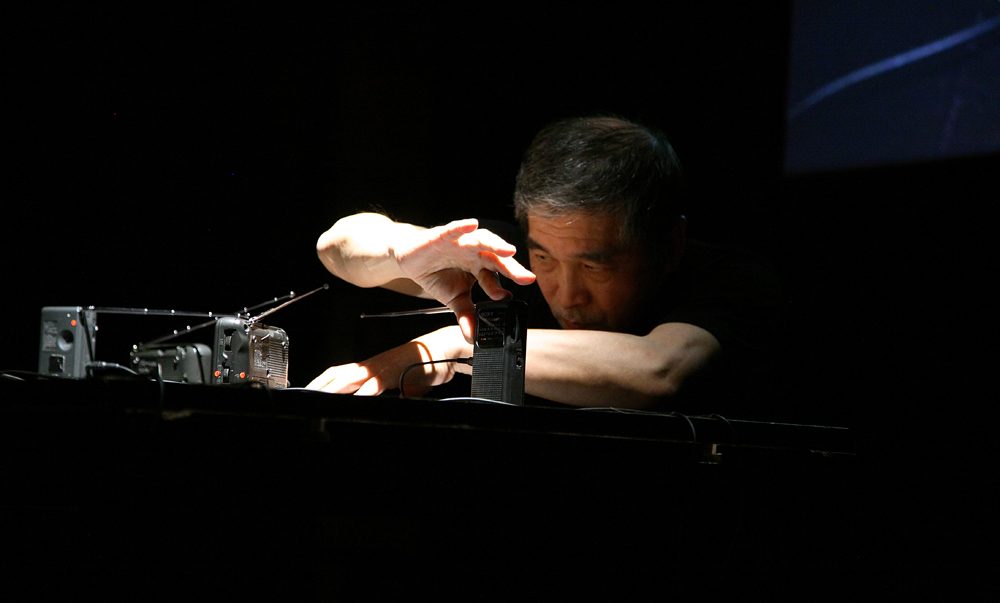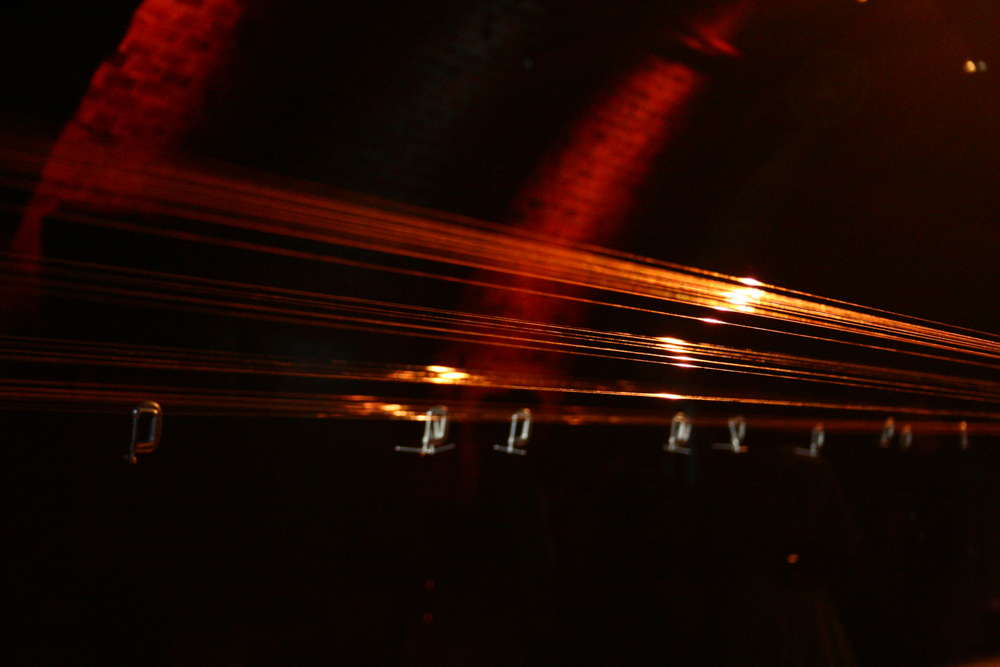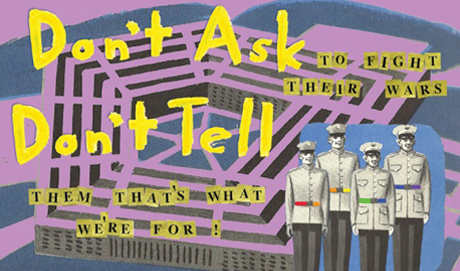
Chord of the Fifth Force
Barry Weisblat
A drone installation populated by flourescent strip lights working in complicity with analogue radios – “all the lights just do their thing”.
Arika have been creating events since 2001. The Archive is space to share the documentation of our work, over 600 events from the past 20 years. Browse the archive by event, artists and collections, explore using theme pairs, or use the index for a comprehensive overview.

A drone installation populated by flourescent strip lights working in complicity with analogue radios – “all the lights just do their thing”.

Performing with hand built radio transmitters, which react to interference in the atmosphere and the electrical impedance of his hands, his radio art is a form of social practice; a statement in opposition to mass media.

A performative survey of listening, as we managed to find it being used as a tool in different practices, disciplines and communities in North America (music, poetry, film, philosophy, activism…).

Three short performances involving social exchange (jumpers, hats, glasses…) and singing (ballads)

On the birthday of Marsha P. Johnson, this event brings together several elements that celebrate the radical care and kinship characteristic of the Trans revolutionary.

Long Stringed Instrument performance involving up to 100 wires strung in tension over a 40m arch.

Databases carry the same seeds of creativity that early documentary makers saw in film. Both can empower people by helping them to master information, both can be claimed to represent some kind of reality or truth.

How do communities formed under the duress of violent othering and the joy of solidarity – such as ballroom culture, Black diasporas, Zapatistas – reform bonds of kinship?

Tormented and drawn-out high-pitched yelps and drones, all interleaved with periods of torpid silence.

Formed as a means to realise William Bennett’s goal of “a sound that could bludgeon an audience into submission”

A conversation between Philip and Moten: how do we read NourbeSe’s anti-narrative poetic lament in Glasgow today, given the city’s role in the history of slavery?

What does it mean to resist seeking assimilation or inclusion within, or let our demands be co-opted by the very systems we seek to dismantle?